This Eid, I pray for an awakening
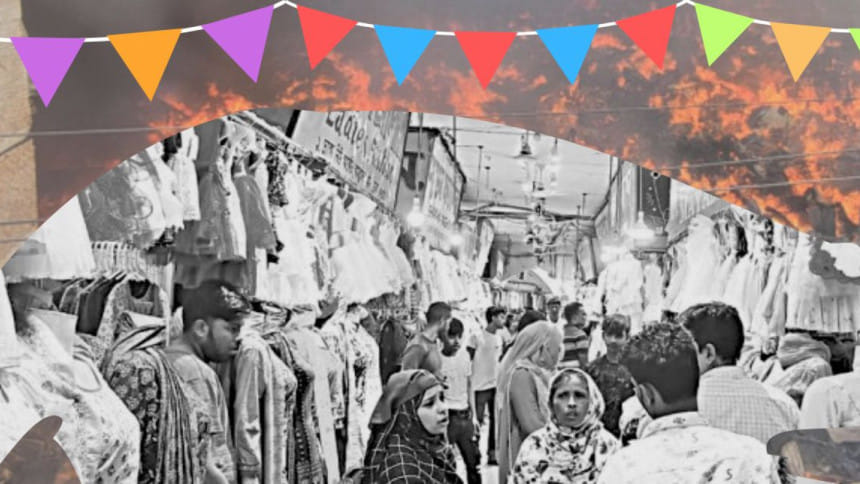
With the month of abstinence drawing to an end, the most joyous day for Muslims around the world is upon us.
I find that Ramadan has visited us at an interesting time this year. The first quarter of the year is over, and as we enter the second, the month of Ramadan has left me with nothing but constant introspection.
And my, oh my, what a month it has been; putting us through tragic events, most of which left behind a trail of ash.
Speaking of ash, let us talk about all those fires for a bit, even though by now you must be tired of the statistics, scrolling down to the next post hoping it's a cat doing something funny. Since the start of Ramadan, there have been seven major incidents of fire, the causes of which are yet to be determined. But if we are being honest with ourselves, it's unlikely the real causes will be revealed. In cases of fire of such scale, finding the fire's source is like looking for a needle in a haystack.
There is an element of irony in these tragedies as well adding to the pathos of the situation.
What were the chances that one of the largest wholesale markets in the country, Bangabazar, would be struck by the most horrible fate at a time when traders were supposed to reap the most profits? The same can be said about the Dhaka New Super Market fire. We saw traders howl, lose their minds, and watch as the fire burnt down all their hopes of a good year.
We watched in shock but soon gulped back our emotions. And perhaps, this is the other heartbreaking addition to this tragedy, one which is not talked about or confronted as much. There's no wall stronger than the collective apathy of citizens in an increasingly restrictive governance system. What cements this wall are the dying hopes, anger, and the genuine curiosity of being – of citizens who have had enough, but cannot speak of it, or do something about it.
Behind such walls are systems (which were meant to protect us), straying further from accountability, and even further from ethical ruling. And when this becomes the norm, citizens are left with the options of either evacuating or making their hands dirty.
If this isn't the case, let me ask you something – why hasn't any one of us asked for solutions to the fires yet? Why don't we have citizen panels in each ward or municipality where communities can come up and report their problems, so that faulty wires or electric lines from loose poles are mended? Why don't we talk about what a mammoth ask it is to expect our Fire Service heroes to put out a fire in Dhaka city, where almost every open waterbody in sight has either been dried up or polluted.
And most importantly, why is it that, after so many incidents of fire, our authorities get away with vague statements such as "long-term measures will be taken to tackle fire in the city", without ever elaborating on what these "long-term measures" should be or how long citizens will have to wait to see these measures come into effect.
I guess it's hard to ask so many questions in this heat. But speaking of, what's being done about that too?
Last I checked, everyone in Dhaka is either blaming it on a severely stretched apocalypse theory or the climate change, the latter being the killer of all things good these days.But the problem with big issues like climate change is that the blame and the solution is always shifted to the powers beyond, far, far beyond our boundary. And to double down on this, our local institutions get away with doing absolutely nothing. What they could've done at this time is probably raise the percentage of green space the city has and go on drives to ensure that even for the sake of beautification, some trees get planted.
But if they are asked why no initiatives have been taken, they'll tell you something about the manpower crisis or a lack of funding as obstacles to getting their jobs done.
It's a tale as old as time. And yet it's a tale that we seem to never get tired of.
Even when Pahela Baishakh arrives with promises to give everyone respite from such tragic events, to start anew and to come together as Bangalees, we end up scrutinising how and why people celebrate this day at all. Compartmentalisation has never been our strong suit …or maybe it is and we do it exceptionally well so we don't have to face the music.
But this is where I am hoping the celebration of Eid, especially after such trying times will bring a dose of magic, since the day and the days preceding it demands that we showcase the best version of ourselves. That we try to be better and do better than our previous versions. And personally, I've seen that is reflected by the many good souls who actively balance out the bad in this city.
We've witnessed organisations and communities accumulate money just to feed those in need in their locality. Mosques who have kept their doors open for those who needed respite from the heat. We've seen people buy burnt clothes from Bangabazar and New Super Market, and inviting others to do the same. We've seen traders in the face of ruin, clean up the debris of their shops and start anew.
What this tells me is not that Bangalees as a nation can endure, or be resilient in the face of adversity; because honestly, that bit is a given. But rather these acts communicate that we have no option but to move on, turn the page and start fresh. And when we do, I hope we do it with a vicious hunger – to be better, to do better and to be a reason for someone else's hope. That, in my opinion, is what we should be reflecting upon this Eid, amid the festivity – face the bitter realities and tell them, not today.
So this Eid, I pray for a fresh pair of eyes, and a reason to hope. Or at the very least (once the festivities are over and we return to life as it is) be able to hope for and demand better realities than the ones we've been dealt.
Nazifa Raidah is a sub-editor at The Daily Star. Reach her at [email protected]

 For all latest news, follow The Daily Star's Google News channel.
For all latest news, follow The Daily Star's Google News channel. 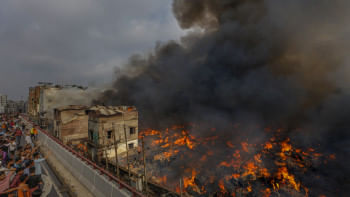
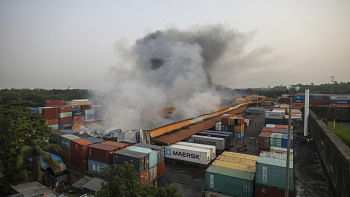
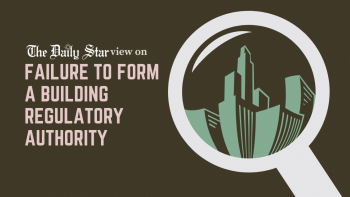
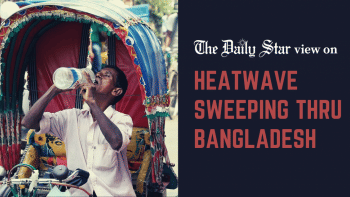
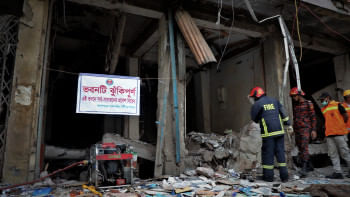


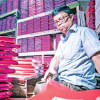


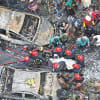
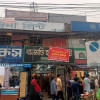


Comments